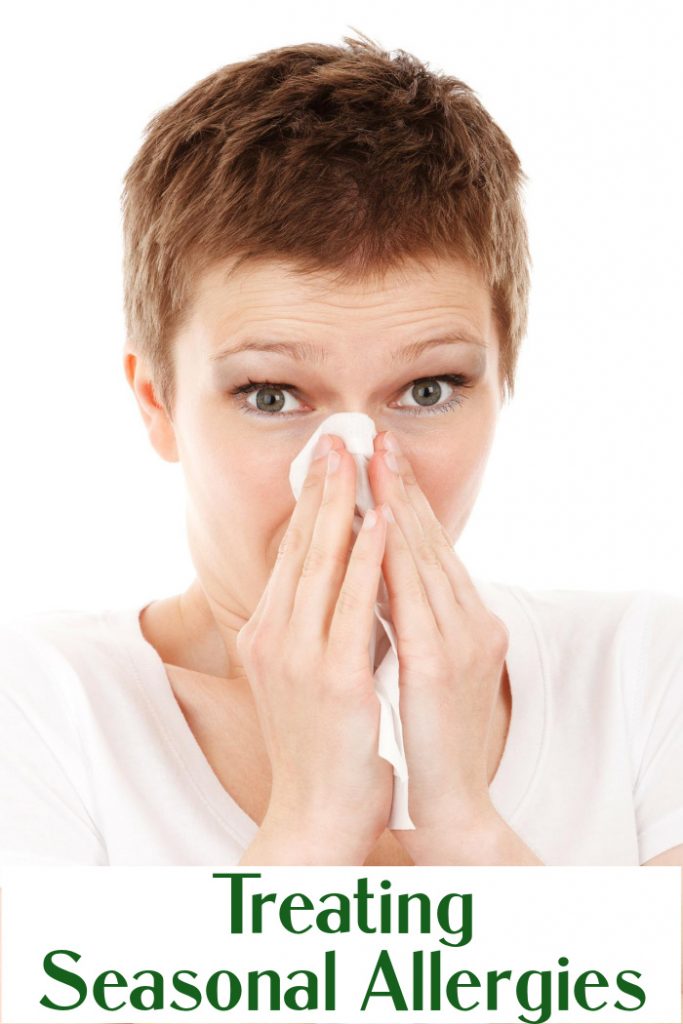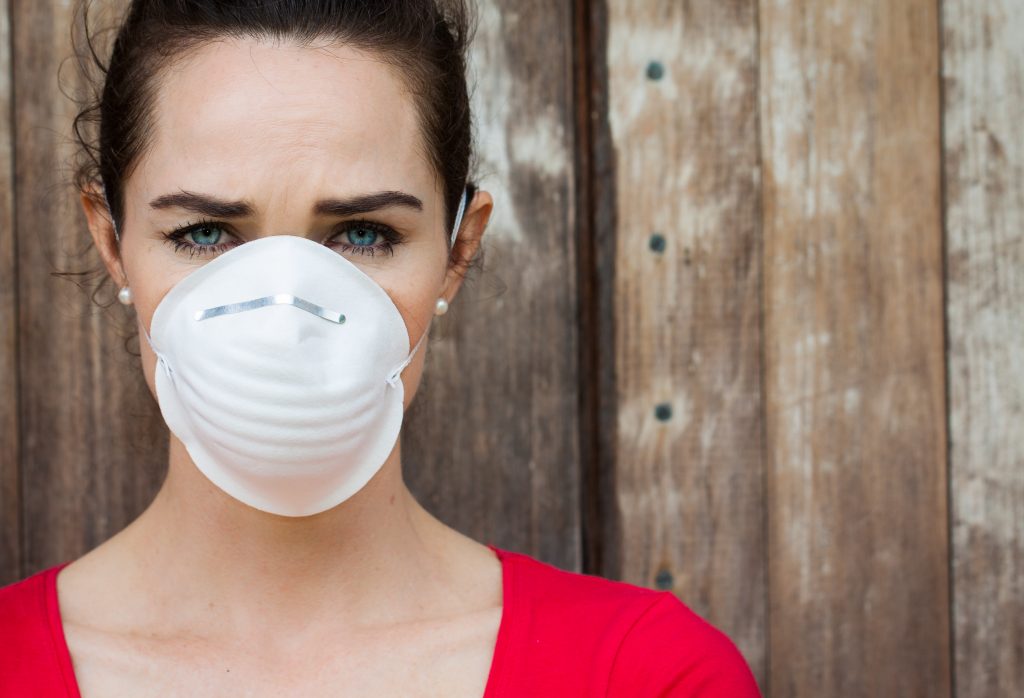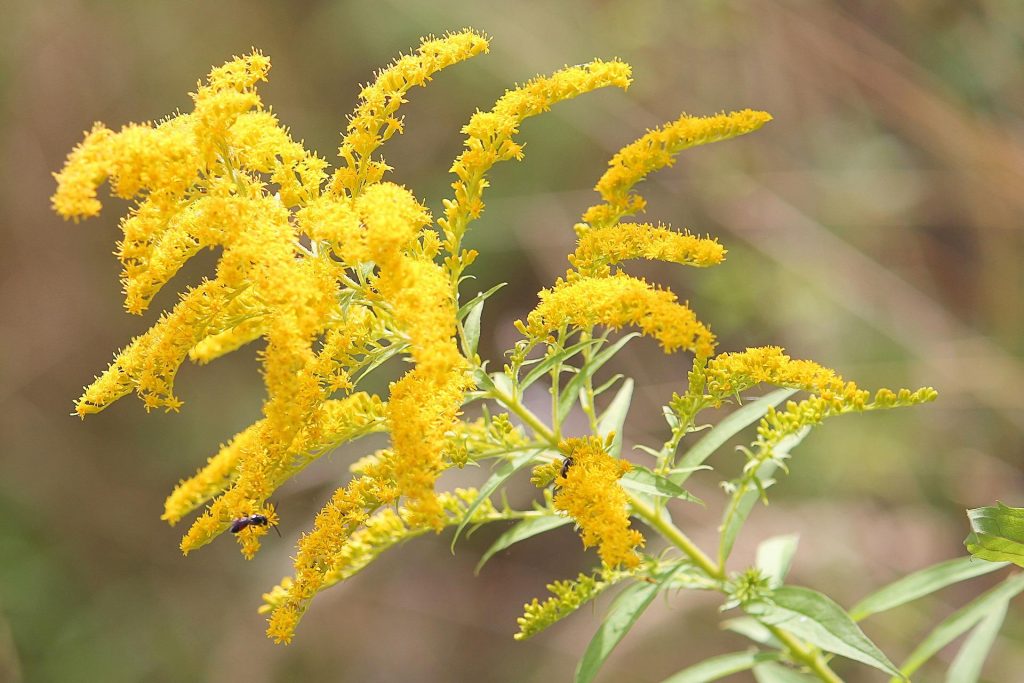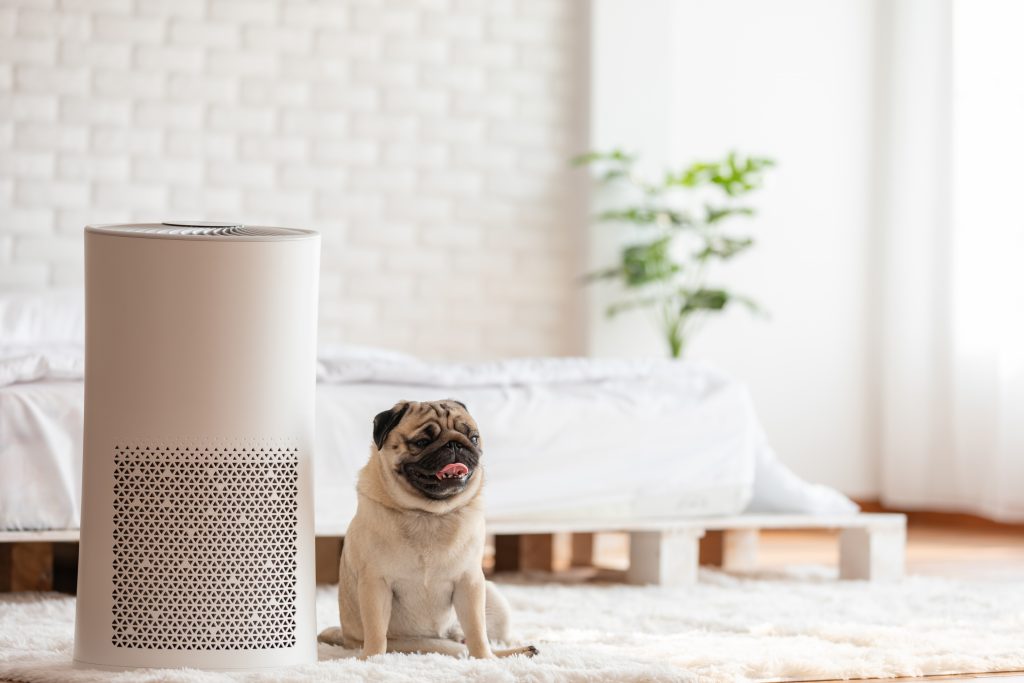It seems like every year my seasonal allergies get worse. And when my current strategies don’t seem to be handling the increase in symptoms, I go searching for new ways of treating my seasonal allergies.
Of course, with Covid around, it can be even worse to have allergy symptoms now. Is it allergies or do I need to isolate? But even more than that, the symptoms that my seasonal allergies bring can weaken my immune system and make me even more susceptible to viruses and other germs.

Treating Seasonal Allergies
Treatment of seasonal allergies begins with prevention. In this blog post, I’ll offer some suggestions on how to avoid the environmental factors that can cause your allergies and then, how to treat those symptoms you do get.
Please remember that I am not a doctor. I am simply a seasonal allergy sufferer. These are ideas that were given to me by my doctors or that I have gleaned from fellow allergy sufferers and tried out for myself with success. With any medications or supplements, it is really important to speak to your doctor before using them. You need to be sure that they are safe for you, given your medical conditions, other medications and supplements you take, and other such factors.

Wear a good quality mask.
Of course, this helps protect you and others from certain viruses such as the flu and Covid, but it can also help protect you from pollen. Wear it when going outside to act as a barrier to those pollen particles and help minimize allergy and asthma symptoms.
Wearing sunglasses can help protect your eyes from the pollen too!
Take vitamin C.
In some studies, vitamin C has been shown to help prevent the development of histamine. Antihistamines work by intercepting and interfering with histamine that has been produced, but it is suggested that vitamin C can prevent it from forming in the first place.
For the greatest effect, it’s best to take vitamin C with bioflavonoids. Most people can tolerate 2000 to 6000 mg per day without it causing bowel distress (too much vitamin C can cause diarrhea in some people so start with a low amount and work up from there to find your tolerance level). These doses should be divided up and spaced out through your day for best results.
Take Quercetin.
Quercetin is derived from onions and certain fruits and has been shown to function as a natural antihistamine. For best results, take it with vitamin C with bioflavonoids (see above). In fact, you can find supplements that contain all 3 in one capsule.
This can really help with itchiness, watery eyes, hay fever, and asthma. It can help prevent histamine release and help break it down faster as well.
Stay inside.
I know, this isn’t a fun choice when it’s a beautiful sunny day outside. But when the pollen counts are high, particularly for the most problematic ones for you (I’m talking to you poplar trees), it’s best to stay inside and close all the windows. It’s especially important to keep the windows closed at night when you’re breathing more deeply.

Don’t hang your clothes outside to dry.
You might love the smell of clothes fresh from the clothesline, but when you bring them back into the house, they will be covered with pollen. In fact, if you spend some time hanging out outside, especially on a high pollen day, you should remove your clothes right away and take a shower.
Remove your shoes at the door to avoid tracking pollen and allergens through your house.
Keep an allergy journal.
You can look up the pollen reports for your area online. My report looks like this:
From here, you can track which days your symptoms are the highest and which pollen counts are showing up on the report. You might start to see some patterns and connections for your seasonal allergies that can be helpful to show your allergy specialist and for planning your days.
If you know it’s a bad day for something you’re particularly susceptible to, plan to stay inside. Or at the very least, avoid being outside in mid to late morning when the counts are the highest. Move things to the early evening when you can – this is when the pollen counts are lowest.
If you are heading out, make sure you’ve taken your allergy medications at least half an hour before going out. It’s best to have the meds in your system prior to encountering the pollen so you can limit your body’s response to it. If possible, start taking your allergy meds early in the season when pollen levels are lower. In this way, it may be possible to lessen your symptoms later in the season when pollen has increased.
Check your bedding.
Look for bedding that is certified hypoallergenic. It’s best to use foam or polyester pillows and to avoid feather pillows.
Use pillow protectors and a mattress protector. Change your bed linens often. Wash them at least once a week in hot water to kill dust mites. Dry on high.
If you can, take a shower before bed and wash your hair to remove allergens, especially if you’ve been outside.
Vacuum your mattress and boxspring weekly. Wear a mask while doing so.
If you have problems with post-nasal drip, try raising your mattress a bit so your head is slightly elevated.
Ask your doctor about allergy shots.
Not only can allergy shots help prevent or lessen reactions to allergens, but they can reduce your health costs by as much as 50%!
Take the right kind of medication for your symptoms.
This is what my allergy specialist recommends for my seasonal allergies. Please check with your own doctor and ask them if such a plan would work for you too!
- If my main symptoms are runny/itchy nose and sneezing, he says I should use a nasal spray.
- For itchy red eyes as my main complaint, he told me to use allergy formula eye drops.
- If my biggest complaint is nasal symptoms and a tickle in my throat, he suggests oral antihistamines.
- For nasal congestion, he recommends a decongestant/antihistamine combination.
It’s really important to speak to your doctor about these ideas. Some of these cannot be used together! Since I get all of these symptoms in various degrees depending on the day and the allergen, my doctor gave me a specific plan of which one to use when and how much time I need between them.
Avoid hand sanitizers and antibacterial soaps WHEN POSSIBLE.
I know, I know. This is virtually impossible while we’re still in a pandemic, but really, when you’re at home with just your own family around, plain old ordinary soap works really well at getting rid of the germs if you wash your hands properly.
Unfortunately, doctors have seen a great increase in allergies in the past 30 years and many studies have tied them to the use of hand sanitizers and antibacterial soaps. There are times when it’s more important to use these and protect ourselves from serious illnesses, but some have become reliant on using them all the time. When you can cut back, it may help.
Keep pets out of the bedroom
Honesty time. I don’t stick to this one. I loved sleeping with my dog and I wouldn’t have stopped for anything. And now, if I don’t let the cat in to sleep with me, she’ll keep me awake all night yowling at my door (and she’s a fully indoor cat).
But even if you’re not allergic to them, during allergy season, pets that go outside will pick up pollen in their fur and bring it in with them. Since you breathe deeper in your sleep, you will inhale more pollen.
Even if you don’t sleep with your pets, the best thing you can do is to put on a mask and use a damp cloth to wipe them down each time they come in to try to reduce some of that pollen. Wash your pets weekly (take them to a professional to have it done if you can) to reduce the dander they carry and use an anti-dander spray on them. Speak to your veterinarian for recommendations.
Be sure to clean any surfaces your pets come into contact with well frequently and be sure to wash your hands after touching your pet.
Speaking of pets, it’s best not to have pet birds in your home. They are known to make breathing problems worse.

Improve the air quality in your home.
Replace your air conditioner and furnace filters. Buy some high-efficiency ones with a MERV rating of 11-12. Be sure to change them regularly (every 2-3 months).
Place cheesecloth over your vents to trap dust and allergens and change it every 2-3 months. Wear a mask or get someone else to change them for you if you can.
Purchase some HEPA filters for your home. Run them often (we keep ours running 24/7!). Be sure to change the filters as needed. They can help improve the overall air quality in your home and can help reduce pollen, pollutants, and virus germs.
Use exhaust fans in your kitchen and bathrooms to help reduce the spread of irritants and the development of mold. Avoid the use of products with irritants such as tobacco smoke, perfumes, especially aromatic flowers, incense, essential oils, paint fumes, and chalk dust.
On days with low pollen and low humidity, air out your home. Open the windows and let some of the stale air out.
Use a neti pot or nasal rinse.
I like to use mine first thing in the morning to deal with my post-nasal drip that occurs during the night. It’s also great to use at night to irrigate your nose and nasal cavity and help rinse away pollen. It’s important to use a nasal rinse after coming in from spending time outside too!
I use Hydrasense and it says you can use it up to 6 times a day when you have a cold or other virus causing nasal congestion or when your allergies are particularly bad. I was surprised by just how much this helps me with my seasonal allergies!
Housekeeping tips
- Use a vacuum with a HEPA filter and bags that seal in the dust.
- Wear a mask while cleaning.
- Do a thorough housecleaning weekly using equipment that traps the dust, not the kind that spreads it and releases it in the air. For example, a damp cloth can be very helpful in trapping dust on hard surfaces, but many feather-type dusters merely remove it from the furniture and into the air.
- If you can, hire someone else to do the cleaning. Wear a mask while they clean or leave the house if possible.
- When possible, hire someone or delegate grass cutting to someone else. If you must cut the grass yourself, it’s really important to wear a mask and to take a shower as soon as you come back inside.
- It’s best to remove the carpeting from your home. They trap dust and moisture in them. If they can’t be removed, they must be vacuumed at least once a week (while wearing a mask).
- Try to avoid dust collectors like books, knickknacks, and so on. Cut back on them where possible.
- Be sure to clean your fridge drip pan every few months to avoid the development of mold.
Dehumidify your home.
Purchase a dehumidifier. Mites like humidity levels above 50%.
Other important tips
- Use throat lozenges to ease the scratchy feeling caused by post-nasal drip and coughing.
- Be sure you’re well-stocked with tissues and carry some with you wherever you go. I try to use washable handkerchieves most of the time, but during allergy season, I find it better to use disposable tissues so I can get the pollen out of my house quickly and easily. I keep my trash bag tied shut in between uses so the pollen is somewhat contained within.
Whew. That is a lot, isn’t it? Personally, my plan for tackling my seasonal allergies is to start with a couple of tips at a time. Once I have those under my belt, I can add more until I’m doing all I can to reduce and treat my allergy response.
Let me know if you have any great allergy tips to share!
Leave a Reply